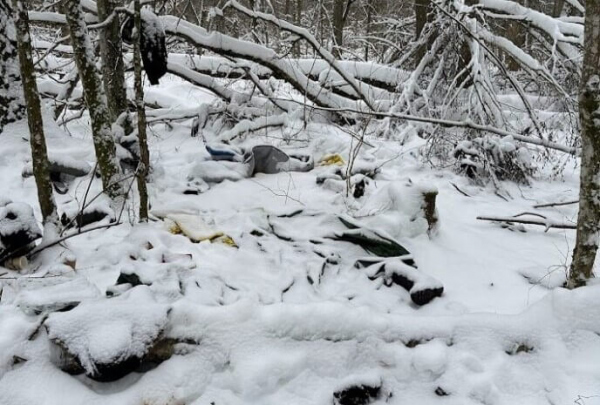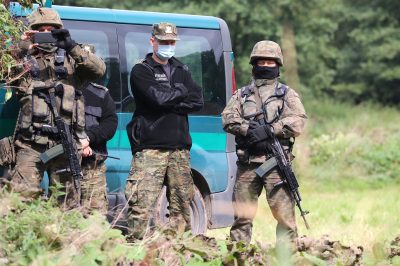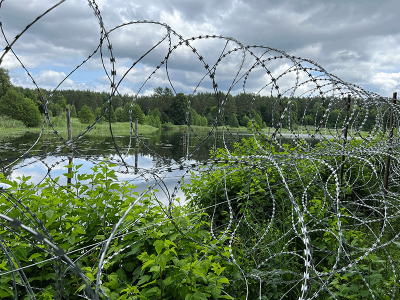
As part of the proceedings before the European Court of Human Rights, the HFHR's lawyers submitted comments on the Polish government’s observations concerning violations of the European Convention on Human Rights (ECHR) during the procedure of returning the migrants to the border with Belarus, i.e. pushbacks. By the end of January 2024, the lawyers submitted comments on thirteen cases related to pushbacks at the Polish-Belarusian border as part of the proceedings before the ECtHR.
In its observations, the HFHR points out that two regulations introduced in response to the humanitarian crisis on the Polish-Belarusian border have drastically lowered the standards for the protection of human rights in Poland. The observations discuss the practice of returning foreigners to the border line on the basis of the so-called “Border Regulation” and on the basis of a decision of the commander of a Border Guard facility under Article 303b of the Foreigners Act, ordering the person concerned to leave the territory of Poland. The authors of the observations argue that the provisions of the Border Regulation violate the prohibition of collective expulsion of foreign nationals resulting from Article 4 of Protocol No. 4 to the ECHR. They also note that the decision to order return to the border line issued under the Regulation cannot be effectively challenged, as an appeal can only be lodged before an administrative court after the measure have been concluded, which does not suspend the return measure. An appeal may be lodged against a decision ordering departure from the territory of Poland, but the exercise of the right to appeal does not suspend the enforcement of the decision.
The authors of the observations also point out that the Border Guard violates the provisions of the ECHR by not examining the individual situation of a foreigner, preventing him from presenting arguments against return and thus exposing him to the risk of loss of life/health or the risk of being subjected to violence/torture upon return to Belarus, which is a violation of Article 3 ECHR. They also point out that whether or not a particular migrant entered the territory of Belarus legally on the basis of a visa is irrelevant when considering whether the Polish uniformed services have violated the law, in particular due to the abundance of information about violence or other forms of inhuman treatment that migrants who entered Belarus on the basis of a visa have experienced in the border area. The lawyers also point to the inability of migrants to move freely in Belarus, as well as to the country's ineffective asylum system.
The issue of pushbacks is particularly relevant because of the impending winter. With temperatures dropping at the Polish-Belarusian border, the practice of sending migrants back to the border line poses an even greater threat to their lives and health. In December 2022, the HFHR submitted observations on forced disappearances at the Polish-Belarusian border to the United Nations High Commissioner for Human Rights. We emphasised that the practice of pushbacks, combined with the local terrain and weather conditions, increases the risk of disappearance and death at the border. In winter, temperatures in the Podlasie region can reach as low as –20 degrees Celsius, which means that many people crossing the Polish-Belarusian border are exposed to hypothermia. Since the start of the humanitarian crisis, there have been around 60 confirmed deaths on both sides of the border.
In autumn 2023, another fence line was erected on the Polish-Belarusian border: the Polish services extended the third line of concertina wire in front of the border wall, making crossing the border even more dangerous. As the HFHR, we maintain our position that no barrier will stop people from crossing borders in search of safety and a decent life. It can only make it riskier. The only way to end the humanitarian crisis is to open legal ways for migrants to enter Poland, which is Poland’s obligation. For this reason, HFHR is increasingly concerned about the new government's policy, which so far is based on a continuation of the policy of pushbacks and securitisation of migration. We strongly urge action to address the increasing number of border deaths and disappearances, and to ensure that national law is in line with international and EU law.


